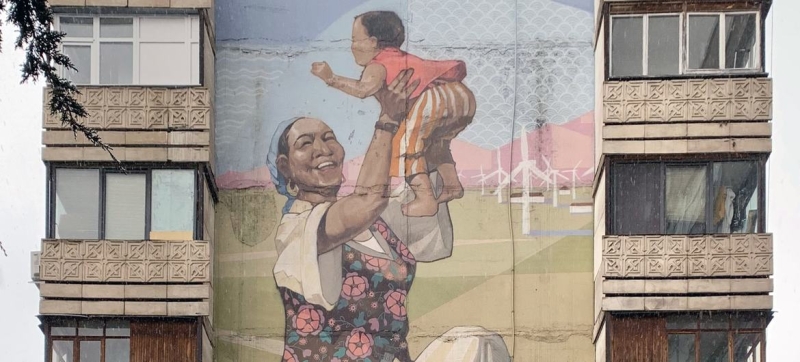
Street mural in Almaty, dedicated to Kazakh women. UN human rights chief calls for an end to ‘economic violence’ against women and girls Human rights
It is time to repeal laws and practices that contribute to “economic violence” against women and girls. UN High Commissioner for Human Rights Volker Türk said this during a panel discussion at the UN Human Rights Council.
In his opening remarks, Türk said “extraordinary progress” had been made thanks to the global women’s movement. However, the very fact that a separate panel of experts on gender-based violence had to be convened shows that progress has been hard-won and remains fragile, he added.
The discussion focused on what is known as economic violence, where a woman or girl is denied access to financial resources as a form of violence or control.
Türk noted that one in three women has experienced some form of violence – physical, sexual, psychological or economic – at least once in her life.
“If one in three men in the world were subjected to such devastating and widespread harm, there would be an emergency summit,” he said.
Beyond the Visibility of the Law
The High Commissioner noted that economic violence often goes unnoticed or unregulated, but can be as harmful as physical violence, as it typically involves control, exploitation and sabotage.
“While economic violence most often occurs within the family, it can also be tolerated and perpetrated by the state through discriminatory legal frameworks that limit women’s access to credit, employment, social protection, property and land rights,” he added.
Read also:
In the year of the “big ones” Only 26 countries are led by women
Turk says global efforts to achieve gender equality have failed so far, with 3.9 billion women worldwide facing legal barriers influencing their participation in economic life. Women also earn only 77 cents for every dollar paid to men.
Revise laws and practices
The High Commissioner called for a review of discriminatory laws and practices to end economic violence.
He also said more needs to be done to ensure that victims of economic violence can seek help.
“We need to improve complaint mechanisms, economic and social support systems, expand psychological support, and ensure that perpetrators are held accountable,” Turk said.
Civil society
Representatives of civil society also spoke during the forum. Esther Waweru of Equality Now said inequality and patriarchal norms within the family are one of the main causes of economic violence.
She noted that 1.4 billion women live in countries where economic violence is not recognized by law and there are no opportunities to protect against it. She said this could leave more women and girls vulnerable to exploitation.
Waveru called on Member States to enact comprehensive laws criminalizing sexual and gender-based violence, intimate partner violence, and economic violence. households” to “ensure fair distribution of joint property” and equal labor rights.
